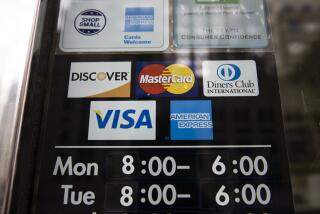Foreclosures will keep rising through 2010, report says
Home foreclosures are likely to keep climbing through all of next year despite stabilizing housing prices in some areas, a major lender group said Thursday as it reported that the level of delinquencies and repossessed homes had jumped to a record.
One in seven U.S. home loans was past due or in foreclosure as of Sept. 30, putting that quarterly delinquency measure at its highest level since 1972, when the Mortgage Bankers Assn. began reporting it. At the beginning of this year, 1 in 10 loans was past due or in foreclosure.
The continued surge in delinquencies suggests that a recovery in the housing market could be stalled by the worsening job picture as well as by further fallout from the easy-money lending that prevailed during the boom years.
Signals about housing have been decidedly mixed. On the bright side, median home prices appear to have stabilized -- for the time being, anyway -- in hard-hit areas of California such as the Inland Empire, and have begun to inch up again in San Diego and Orange counties and in San Francisco.
But recent negative indicators, in addition to rising foreclosures, include the home lender group’s report Wednesday that applications for mortgages to buy homes have declined for six straight weeks despite interest rates below 5% on 30-year fixed-rate loans. Also Wednesday, the Commerce Department said the seasonally adjusted rate of housing starts fell more than 10% in October from the previous month.
Overall, 14.41% of all U.S. home loans were in foreclosure or at least 30 days past due at the end of the third quarter -- 1 in 7 -- and up from 13.16% in the second quarter.
As it has for some time, the group’s report on delinquencies blamed job losses, not tricky adjustable-rate loans, for causing most of the recent pain.
The mortgage group’s chief economist, Jay Brinkmann, said he expected the delinquencies to keep rising until the unemployment rate tops out in the first or second quarter of next year.
Normally, foreclosures would continue rising for two quarters past the peak in delinquencies, he said. However, given the extreme decline in home prices, Brinkmann predicted the foreclosure rate would continue to rise longer than usual past the peak in delinquencies.
Four Sun Belt states where the housing bubble inflated the most and exotic lending was most prevalent -- California, Florida, Nevada and Arizona -- accounted for 43% of the foreclosures started in the third quarter.
Prime loans -- those made to the borrowers with the best credit -- continued to make up a growing percentage of troubled mortgages. Such loans accounted for nearly 33% of new foreclosures last quarter, compared with 21% a year earlier, when high-risk subprime loans made during the housing boom were the main reason for default.
In California, 4.62% of fixed-rate prime mortgages, considered the safest home loans of all, were in foreclosure or 90 days delinquent.
Jason Gorowitz, a 34-year-old attorney laid off by a Woodland Hills law firm in September, fears his loan is headed in that direction because the job market is so bad.
Gorowitz said he and his wife took out two loans to buy a two-bedroom Sherman Oaks condominium for $427,500 in 2006, fearing they’d otherwise be priced out of the then-booming housing market. He had paid off one loan, a home-equity credit line for 10% of the purchase, when he lost his job.
Gorowitz said the condominium was now worth less than his remaining $328,000 debt. He has been trying to persuade his lender, JPMorgan Chase & Co., to temporarily lower his payment, giving him some breathing room until he finds a new job to support his wife and toddler son.
His repeated calls to Chase employees have proved fruitless, he said, because the bank insists it won’t talk about a loan modification until his bank accounts drop below $6,000.
“If something isn’t done soon, I’m going to be in default,” he said.
“I’ve tried to do it the way you’re supposed to -- pay down your mortgage, be responsible, don’t walk away from your obligations. But I can’t get anyone even to discuss lowering my payment.”
Chase executives, citing privacy laws, said they couldn’t discuss an individual customer’s finances.
But a Chase spokesman said the bank, in considering loan modifications, complied with all aspects of the anti-foreclosure program sponsored by the Obama administration.
The spokesman also said banks often were reluctant to modify loans when a borrower’s woes appeared to be temporary.
More to Read
Sign up for Essential California
The most important California stories and recommendations in your inbox every morning.
You may occasionally receive promotional content from the Los Angeles Times.







